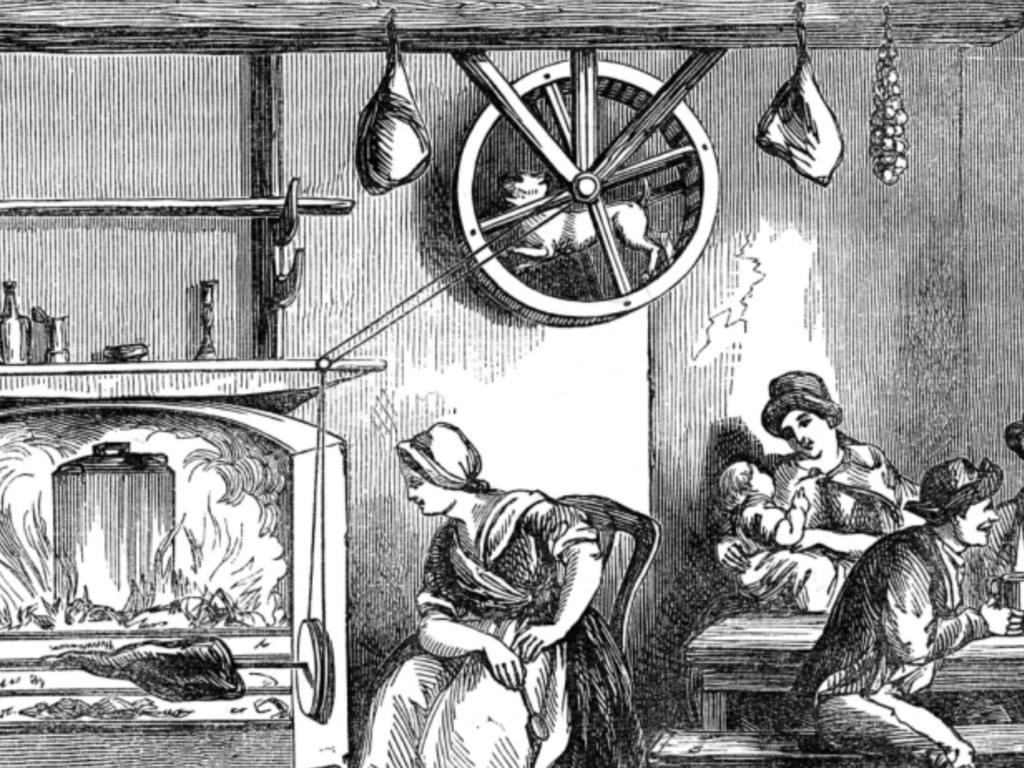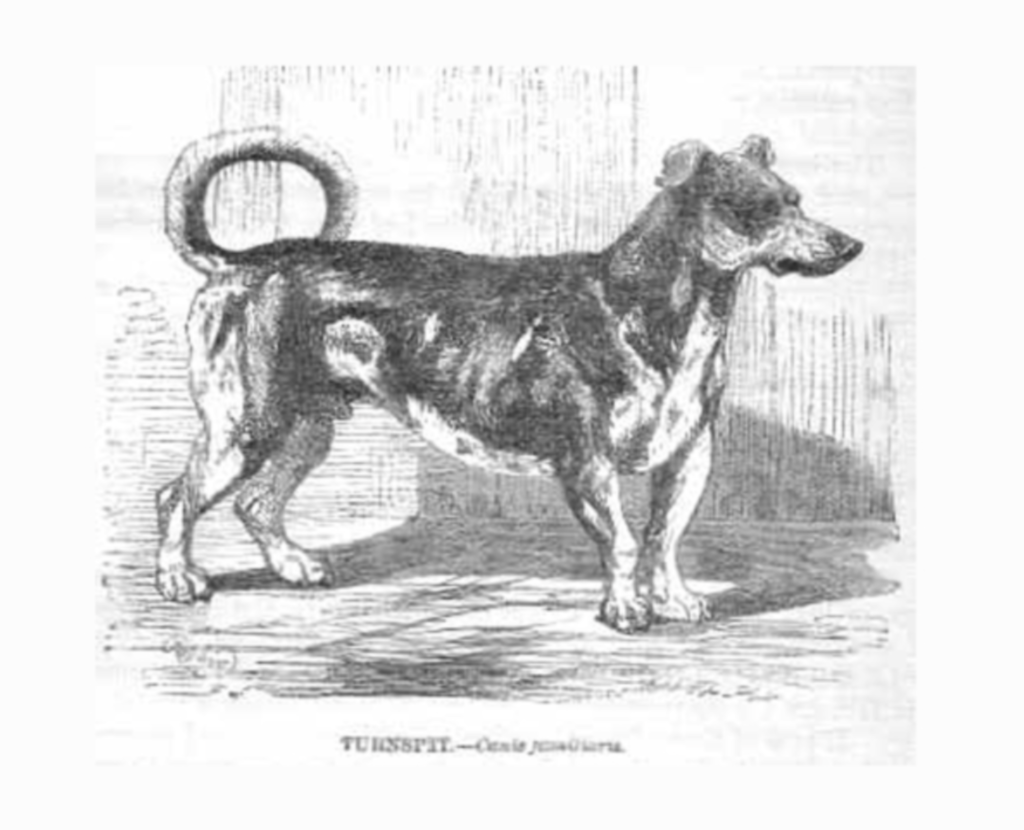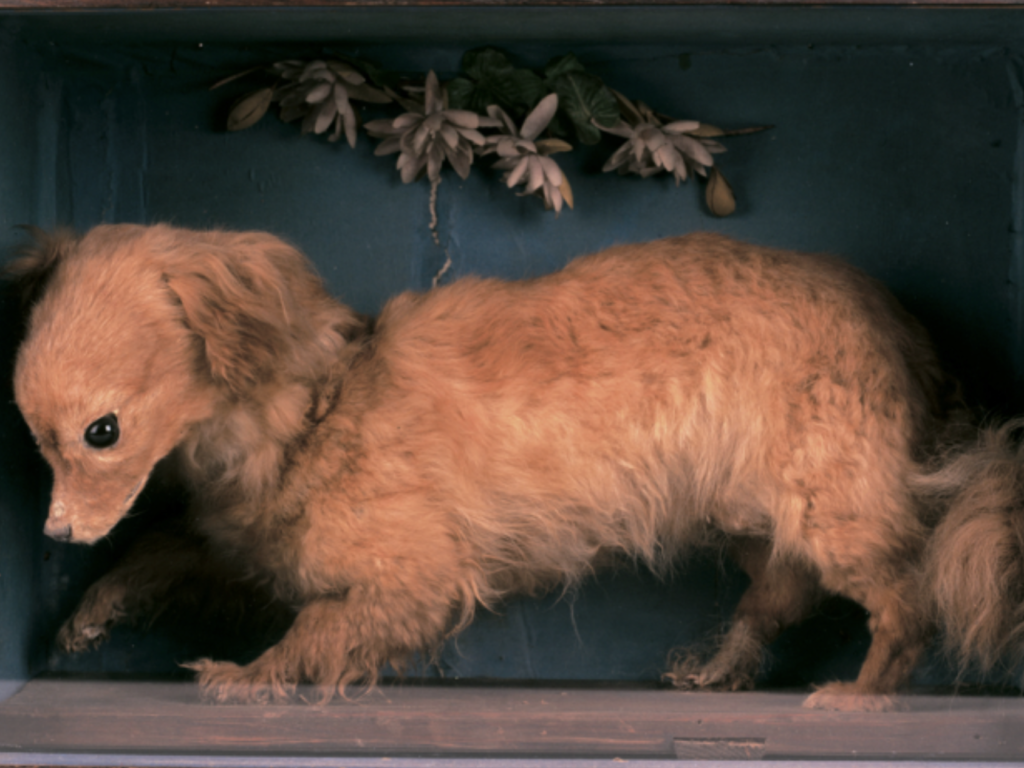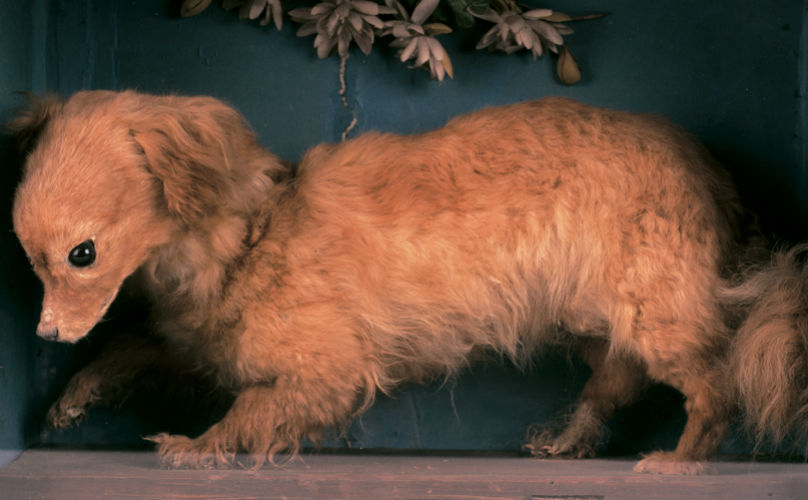Dogs are better than us at many things, including sniffing bombs, being cute, and making friends. But there was once a dog that kept kitchens in business, and its name was the Turnspit.
During the 16th century, Britain’s most valuable kitchen staff member was a dog. The Turnspit was bred to run in a wooden wheel that turned a roasting spit, cooking the meat evenly over an open fire, “in such a manner that no cook or servant could do it more cleverly,” according to royal physician and dog expert Johannes Caius, circa 1576, as quoted in Stanley Coren’s Pawprints of History.


Before dogs took over, the job belonged to younger boys who just couldn’t keep up with the long hours (sorry, guys). The wheels were placed far away from the flames to keep the dogs safe from overheating, but they were forced to keep their short legs on the move. Turnspits were small, strong, and sturdy.
Zoologist Carl Linnaeus named them Canis vertigus, Latin for “dizzy dog.” If there were a Latin term for “dog with various specific names,” it’d be theirs, too.


The fall of the Turnspit came after they started being employed in the United States. In 1850, founder of the ASPCA, Henry Bergh, was so moved by the appalling conditions in which the Turnspits were found in Manhattan hotels, that its horrific living conditions contributed to the birth of the organization in 1866. Coincidentally, this was around the time the dogs had become scarce, and 50 years later, they completely disappeared.


There’s still one Turnspit left, and her name is Whiskey. She’s on display at the Abergavenny Museum in Wales, posing with some flowers against a pretty blue backdrop. Longtime custodian of the museum Sally Davis interprets the set up as signs that someone really did love her.
Still can’t quite picture what it was like to be a Turnspit? Watch this short clip!
Ministry of Curious Stuff – Turn Spit Dogs c/o WÖNKY Films






